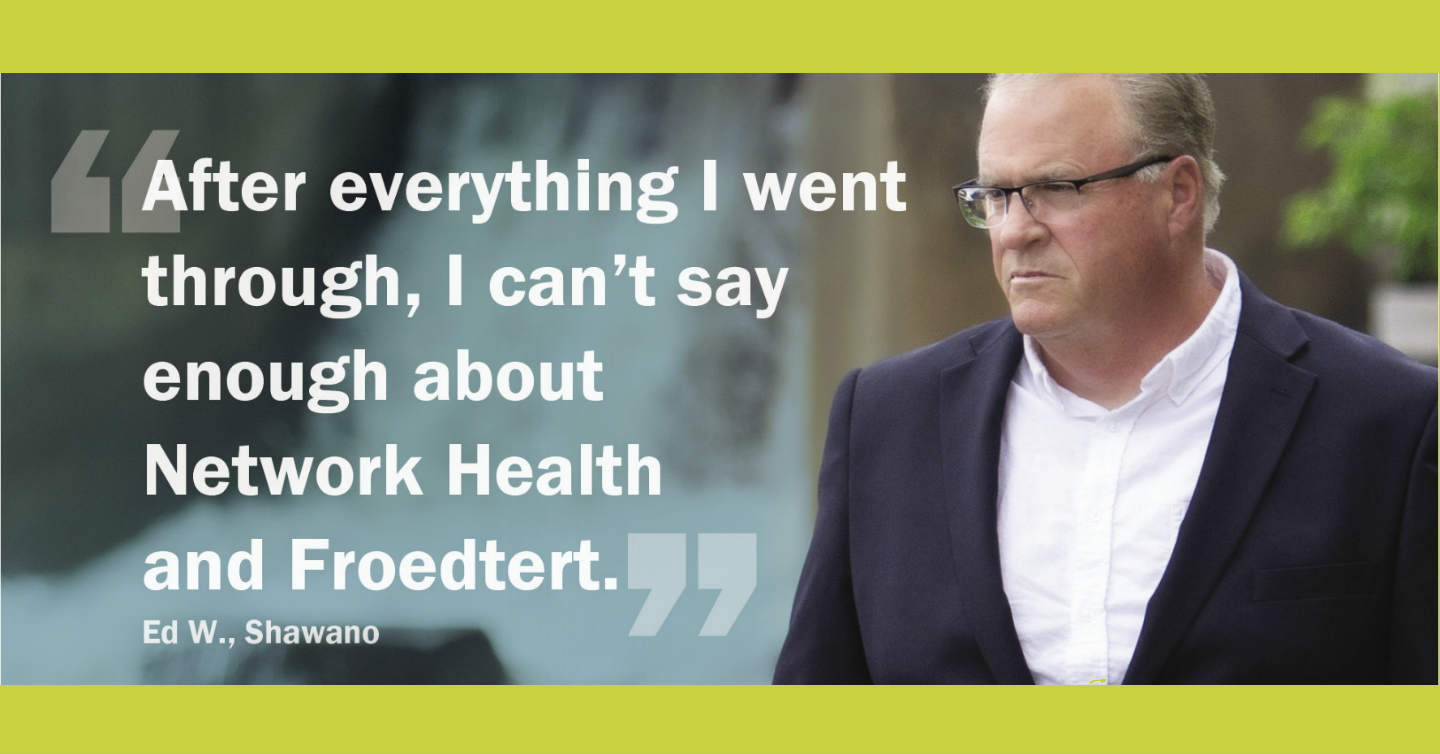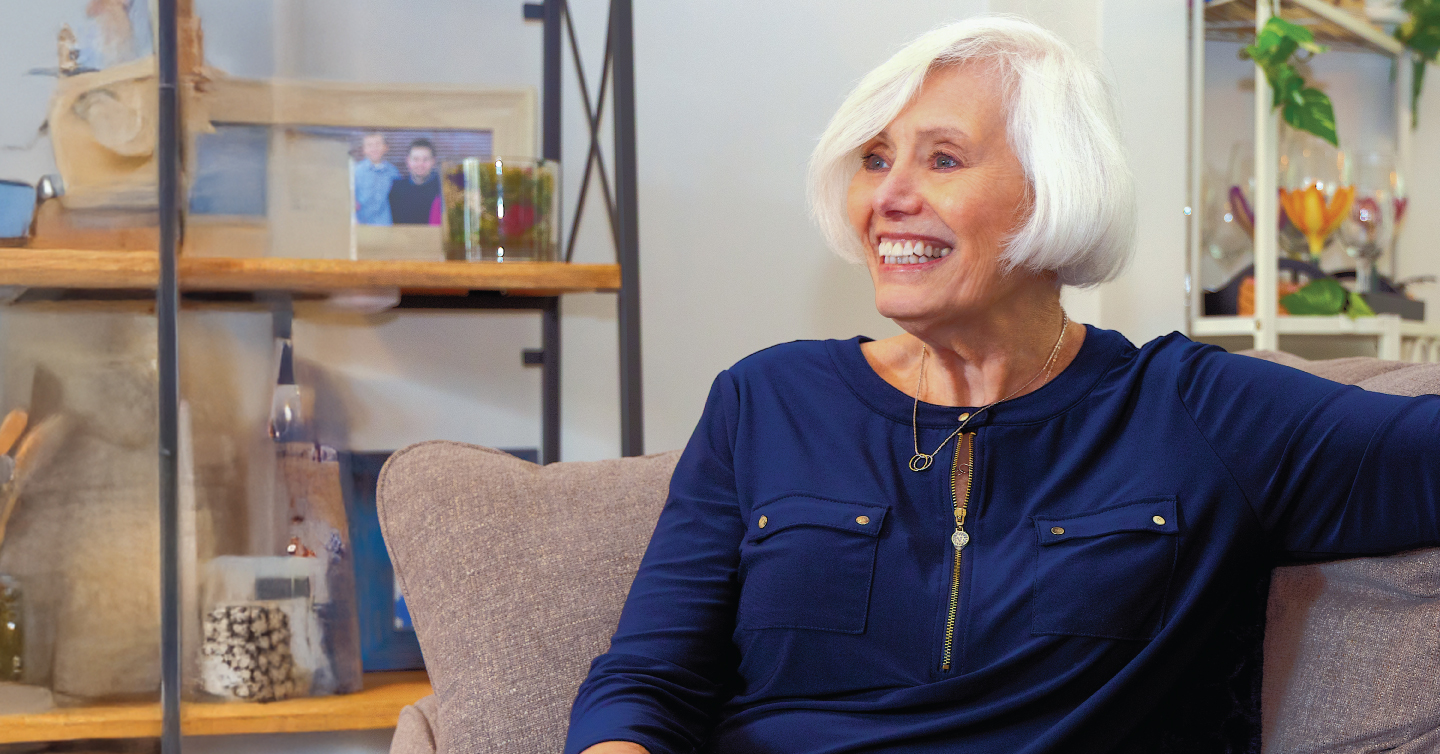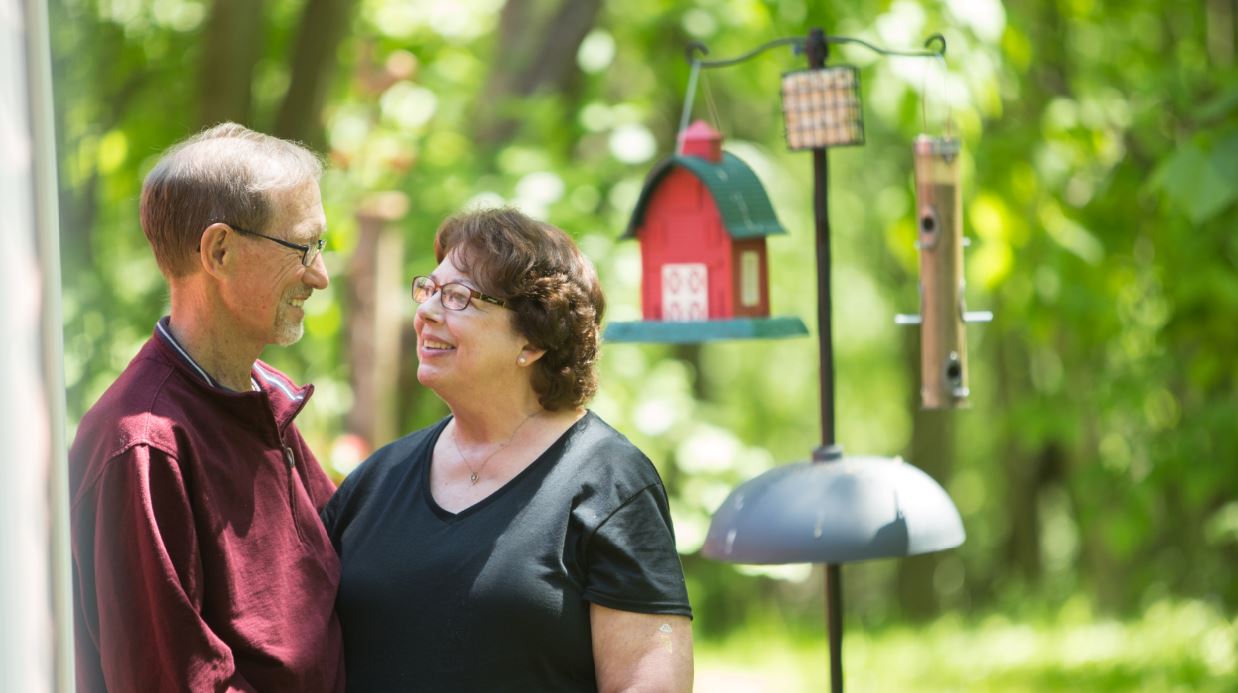Waiting For The Call

For people waiting on an organ transplant, every time the phone rings, time stops for a few seconds. You answer it desperately hoping it’s a call for a transplant. Every time it’s not, your heart sinks. If it is a call for a transplant, you are also anxious to learn if you are the primary recipient but need to be prepared to be a secondary one.
Diana Whealon and her husband Ed waited almost two full years to get a call about a liver transplant for Diana. When they finally got the call in October 2017, doctors had what they believed was a “perfect match.” She and Ed were excited at the possibility of Diana receiving a new liver to help her get back to the business she loved.
In 1996, after more than 18 years working in the livestock industry, Diana wanted a change. For most of her adult life, she had raised award-winning Weimaraner dogs as a hobby. The hobby turned into a passion and eventually a business opportunity. She learned to train and groom dogs and turned her house into a dog grooming and boarding business. After a few months, Ed realized their house was not set up for what Diana wanted to do and where she wanted to take the business. Diana created a formal business plan, presented it to the Shawano Industrial Development Commissions and got approval to buy land to build her kennel. They broke ground in spring 1997 and opened Complete Canine Care Center in the fall of that same year.
“This was her dream and I wanted to support it because that is what husbands do,” Ed said. “Her plan was to double the size of the facility in five years, but it only took three.”
Every year the business continued to grow with Diana managing daily operations and Ed helping when he could while also working as a Shawano police officer. Life was busy and good for the Whealons until October of 2015.
Diana woke up one morning itchy all over her body. She thought it was a reaction to Humira™, a drug she was taking for her rheumatoid arthritis. After a week, the itching grew worse, even on the bottom of her feet, and Ed noticed she appeared yellow. They visited her personal doctor who ordered a blood test. Results showed elevated bilirubin numbers. Higher levels of bilirubin may indicate different types of liver problems. Her doctor also ordered an MRI, which showed something on Diana’s liver.
Diana was referred to Appleton Medical Center for a biopsy. When the doctor came in the room, he had some unexpected news. He believed Diana had cholangiocarcinoma, a rare and often fatal cancer that effects the liver’s bile ducts. The doctor also believed the mass on her liver was a tumor blocking the bile ducts, causing a backup and the yellowish color in Diana’s skin. The only chance of survival was a liver transplant.
“We were stunned, to get that type of news just rocked our world.” Ed said.
They spent a day digesting the news and had what Ed called a “one-day pity party.” After that, it was time to move into action. Diana and Ed traveled to Froedtert Medical Center, in Milwaukee, where doctors confirmed cholangiocarcinoma and put a stent in to relieve the blockage. The doctors also provided a very honest assessment of the situation.
“The doctors told us ‘If you do nothing, two months tops. If you follow the program for a transplant, it could be two years or more and we believe we could have a liver by then,’” Ed recalled.
The Whealons called Network Health to learn about next steps. They got a call back from Network Health Care Management Coordinator, Rosanne Rott, RN.
Rosanne, a nurse for more than 30 years and a care management coordinator for 25, said Diana immediately began the process of learning how she could get on the liver transplant list at Froedtert Medical Center, a pioneering liver transplant program since 1983, and the only liver transplant program in eastern Wisconsin.
“It was the quickest I had ever seen anyone sign up for the transplant list,” Rosanne said.
Rosanne walked Diana and Ed through the process. She was upfront, honest and explained it was going to be a journey, but with a liver transplant there is a survival rate so they were optimistic. They also realized, after talking to Rosanne, it was more complicated than just going in and getting a new liver.
Diana was required to visit Froedtert every three months for regular chemotherapy and tests that would determine her Model for End-Stage Liver Disease (MELD) score. The MELD score measures the mortality risk in patients with end-stage liver disease and prioritizes allocation of organs for transplant. The MELD scale ranges from six (less ill) to 40 (gravely ill) for liver transplants. The higher your number, the greater the chance for a transplant. In December 2015, Diana was approved for the transplant list with a MELD score of 26.
“We felt that whatever we needed to do, we would do it,” Ed said. “I had retired from the police department and my focus was on whatever I needed to do to help Diana.”
Over the next two years, Diana focused on staying positive and following her doctors’ guidance. She also became an advocate for organ donation. She believed if one person became a donor because of hearing her story, it was worth it. Rosanne checked in regularly with Diana to see how they were doing, which meant a lot to both Diana and Ed.
“Rosanne became an ally for Diana,” Ed said. “Diana felt comfortable right off the bat with Rosanne and she needed that, given the situation.” Rosanne also provided support to Ed who, as the primary care giver, needed someone to understand the challenges and stress he was feeling.
In the summer of 2017, the chemotherapy was starting to take a toll on Diana who was having challenges with her mobility. Her MELD score was also going up. In August 2017, her MELD score was 33.
GETTING THE CALL
When they got the call October 19, 2017, Ed was trying to stay positive, but having experienced false alarms over the past two years, it was challenging. This call was different. Diana was the primary recipient. Doctors were very confident in this donor, especially the size and shape of the liver. The doctors told Ed and Diana it was the best match they had seen. They headed to Froedtert Hospital and Diana began surgery.
As Ed waited, he heard from Diana’s surgeon, Dr. Johnny Hong. He told Ed that when they opened Diana up, they noticed what looked like speckles of pepper on other internal organs. While Hong and the other doctors believed they knew what it was, they tested it and it was confirmed—the cancer from Diana’s liver had spread to other areas of her body. From previous phone calls with Rosanne, Ed knew this was not good. Once cancer spreads, doctors will not put a healthy organ inside a patient in this condition. He would deliver the news to Diana.
In her room, Ed looked at his sleeping wife and dreaded having to tell her she didn’t get her transplant. When Diana woke up, she looked at Ed and asked if she had gotten the liver.
“I had to tell her no because of the spreading cancer. It was the hardest thing I ever had to say and the look on her face was pretty tough.”
After the disappointing news, they were still determined to explore all opportunities to help her. “We explored clinical trials or any treatment to give her just a little more time,” Ed said. They soon realized there weren’t many options for Diana based on the amount of chemotherapy she had undergone over the previous two years.
Throughout Diana’s illness, they had stayed in Cedarburg with Diana’s parents to be closer to Milwaukee in case they got a transplant call from Froedtert. Cedarburg was Diana’s childhood home and she was comfortable there. She not only had her parents but her brother and sisters nearby. While Diana spent time with family, Ed would visit Shawano periodically to take care of any issues with the business or at home.
Early in Diana’s sickness, Ed mentioned to her that he had thought about running for mayor of Shawano. After she got sick, that took a back seat. With the election for Shawano mayor planned for early 2018, Diana asked Ed if he was still interested. He asked what she thought. Diana said, “If you want to run for mayor, you have my blessing.” She then signed Ed’s nomination papers for mayor. They also found a buyer for their Complete Canine Care Center. After owning it for more than 27 years, they sold it to one of employees and her husband. Ten days later on Christmas Eve, Diana passed away.
Ed knew the doctors and staff at Froedtert Hospital had done all they could. “The team at Froedtert was wonderful,” he said. “We couldn’t have picked a better place to go.”
Weeks after Diana passed away, the explanation of benefits (EOB) and bills for Diana’s care began arriving, including a bill for genetic testing completed by a non-participating provider. For a non-participating provider, Network Health needed a prior authorization ahead of the test. Without prior authorization Ed was responsible for the full amount. With his wife’s death still raw and painful in his mind, he was frustrated. Between Diana not receiving her liver transplant and Ed doing whatever he could to help his wife, pre-authorization was not the first thing on his mind. He didn’t even know about the test, let alone whether it was conducted by a participating Network Health provider.
After speaking with Rosanne, Ed filed a written appeal with Network Health’s grievance and appeal committee, a panel of Network Health employees from across different areas of the company. The committee reviews written appeals and invites people to present their appeal in front of the committee. He met with the committee to tell his story.
He explained the situation and the fact that given everything happening with Diana at the time, he was not thinking about prior authorization requirements. He just wanted to do whatever was possible to have more time with his wife. After speaking to the committee, Ed drove back to Shawano to prepare for the mayoral candidate debate that evening. On the drive back, he received a call from Network Health telling him the committee had sided with him and would pay for the test. Ed also learned a few weeks later that he had been voted the new mayor of Shawano.
“After everything I went through, I can’t say enough about Network Health and Froedtert,” Ed said. “With people like Rosanne Rott, the doctors at Froedtert and how we were treated with care and compassion, I will be with Network Health for as long as I can.”



